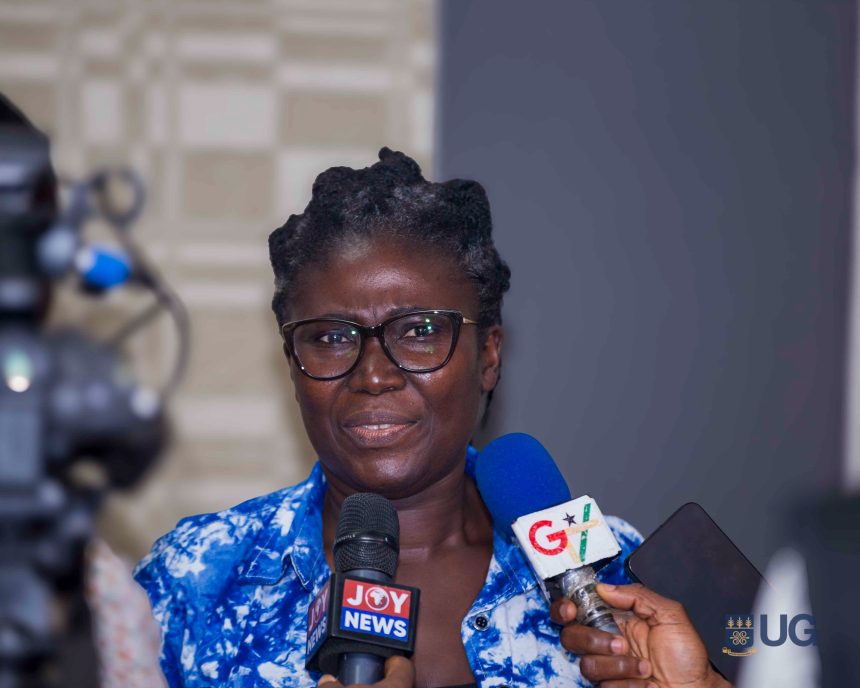Principal Investigator of the RID-funded UG Anti-Galamsey Research Project and Associate Professor at the Department of English at the University of Ghana, Professor Gladys Nyarko Ansah has urged the youth to refrain from engaging in illegal mining and to avoid justifying the practice, as doing so downplays its devastating impact on the environment and communities across Ghana.
Speaking on the Research and Innovation Agenda programme on Radio Univers, Prof. Gladys Nyarko Ansah emphasised that galamsey activities not only destroy water bodies and farmlands but also pose long-term health and economic risks.
She called for a shift in mindset, especially among the youth, stressing the need to explore sustainable and legal alternatives that contribute positively to national development.
”Choose not to do galamsey, choose not to support, choose not to rationalize galamsey and you will be fine, I know there are some students here who do galamsey because that is how they think they can fund their education, there are alternatives, so they should not go for the low hanging fruits. They should look for other alternatives that are long-lasting,” she said.
Prof. Ansah also emphasised the need for effective leadership that prioritises citizens’ well-being and empowerment over short-term political gains.
”My advice to the system is that the system should rise above votes and look at building a nation. You don’t build a nation with just money, you build a nation with people because if you get all the gold and the people are diseased and dying, you don’t have a nation,” she noted.
She further called on stakeholders and NGOs to focus on creating awareness on galamsey through the use of billboards in areas where galamsey is prevalent.
Prof. Ansah’s remarks are a clear call for personal responsibility and stronger leadership in addressing galamsey. Her message stresses the need for collective action to protect the environment, safeguard public health, and secure a sustainable future for generations to come.
–
Story by Hussein Habibata Maltiti| univers.ug.edu.gh
Edited by Michelle Lartey





